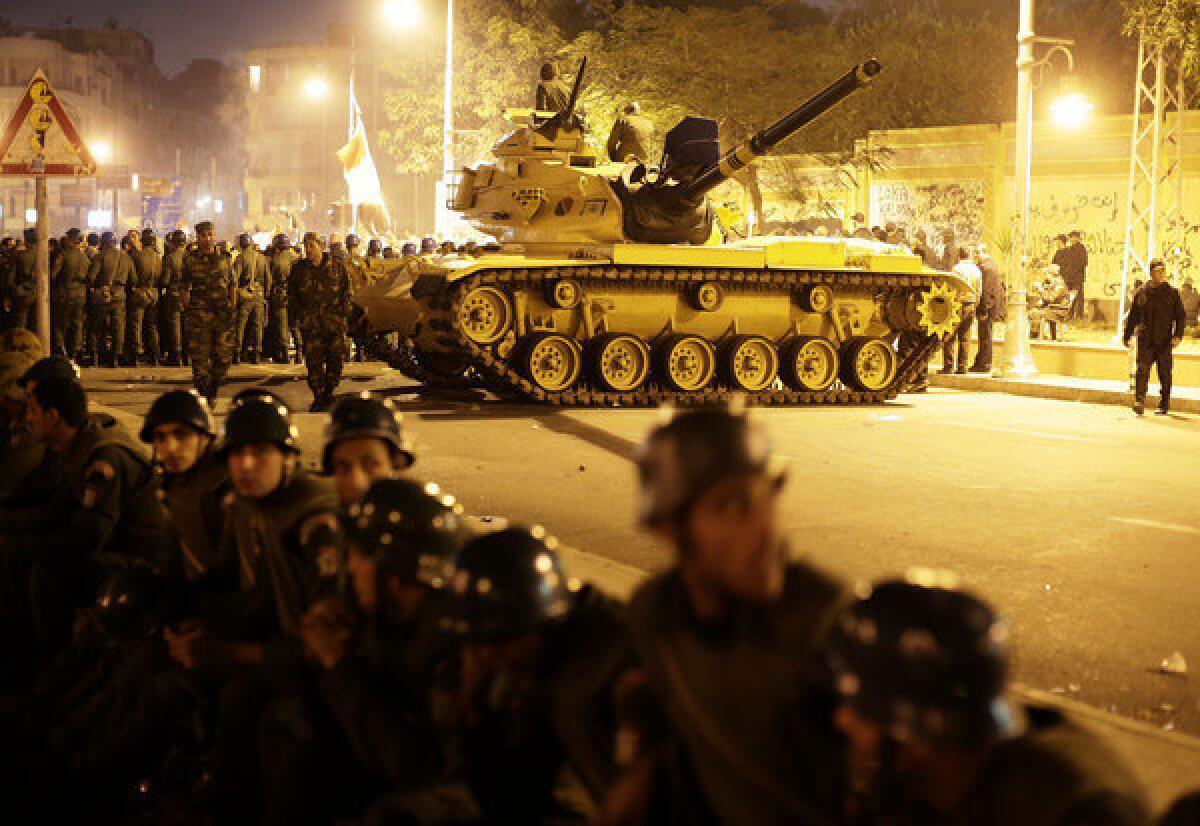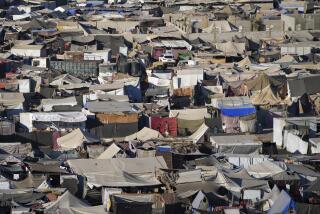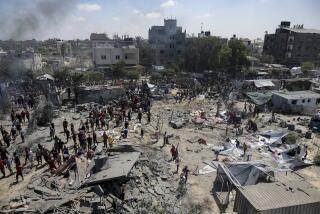Protracted unrest, instability ahead for deeply divided Egyptians

As restive Egyptians face a vote on a controversial new constitution this weekend, many may find themselves torn between exhaustion and fury.
Voter endorsement of the hastily drafted national blueprint that enshrines the rights of Islamists but ignores most others might encourage opponents to accept defeat and move on, curbing persistent unrest that is hampering economic recovery.
Or, disillusioned opponents of President Mohamed Morsi and his Muslim Brotherhood allies could react with renewed anger, prolonging the violence and the bitter polarization of the political scene.
Though potentially a majority, opponents of the proposed constitution were late in crafting a common strategy for bringing about its defeat. Only on Wednesday did the leading force, the National Salvation Front, urge women, liberals and adherents of faiths other than Islam to go to the polls and vote “no,” rather than boycott the referendum in hope that it would fall short of the turnout needed to be valid.
Clashes between Morsi supporters and demonstrators from the fractured opposition have taken at least eight lives in the last week and injured hundreds. The constitutional battle and outrage over the president’s attempts to inflate his powers have rekindled the chaos and volatility that gripped the streets before longtime autocrat Hosni Mubarak’s February 2011 ouster.
But even some of Morsi’s fiercest critics appear to concede that the constitution is likely to win endorsement. Islamists have mobilized their voters and taken it upon themselves to dispel protesters in the guise of restoring public order.
Until the votes to be cast this Saturday and next are counted, Morsi has empowered the military to arrest and detain anyone causing public disruption and to patrol alongside police “to preserve security and protect vital state institutions,” the state-run Middle East News Agency reported.
The armed forces are assured of their pay and privileges under the draft constitution, and their involvement in civilian law enforcement has stirred unease and prompted comparisons between Morsi and the aggressive tactics of his authoritarian predecessors.
“What has happened in the last couple of weeks is a real breakdown in the process in that you’ve now got deeply entrenched camps that don’t trust each other at all, and that makes any kind of negotiation or compromise harder,” said Isobel Coleman, director of the Civil Society, Markets and Democracy Initiative at the Council on Foreign Relations.
Morsi appears likely to secure endorsement of the draft, Coleman said, thanks to the Muslim Brotherhood’s success in previous elections in convincing conflict-weary Egyptians that a vote in its favor is a vote for stability.
“People are tired out. I think there are quite a few who are in the more moderate and progressive opposition who say the referendum is a done deal, let’s move on and focus on the parliamentary elections” expected in the spring, Coleman said.
But fatigue, she said, is no guarantee that the economically destructive unrest won’t continue or even escalate as those angered by Morsi’s maneuvering to put himself above judicial review continue to vent their rage in public. Nor can it be ruled out that the armed forces won’t take advantage of the opportunity to crack down on protesters they see as the cause of Egypt’s post-revolutionary economic tumble.
One casualty of the constitutional standoff, at least in the short term, has been a crucial $4.8-billion loan from the International Monetary Fund. Egypt needs the money to pay domestic and foreign bills and to get industries working again after nearly two years of Arab Spring turmoil. The Egyptian Finance Ministry reported Tuesday that it would put off formal application for the loan until at least January, a move probably forced by the government’s inability to impose the belt-tightening demanded by the global lender.
Haim Malka, Middle East Program deputy director for the Center for Strategic and International Studies, expects that Morsi will manage to push through the constitution and, as a result, weaken his opposition.
“They can contest the results as illegitimate through public protests, but that could easily backfire and trigger a more violent confrontation. It could even spark a crackdown by the military, which broadly supports the constitution and prefers a return to stability,” Malka said. “In either case, Egyptian politics are likely to remain highly polarized for the foreseeable future.”
Mohamed Elmenshawy, a senior scholar at the Middle East Institute, sees an intensifying class war developing among Egyptians. The Islamist majority is poorer, more rural and less educated than Morsi’s various adversaries. But they are more united, as his opponents run the gamut from liberal advocates of human rights and democracy to authoritarian hard-liners relegated to the political fringes when Mubarak fell from power.
“The voices of the non-Islamists are very loud,” Elmenshawy said of the wealthy industrialists, academics, lawyers, doctors, journalists, artists and activists. “They feel they are 80% of society when in fact they are more likely 20%.”
Unrest will continue to roil Egypt, he said, because “politics has become a zero-sum game. The opposition will never accept this constitution and the Islamists won’t accept anything else.”
ALSO:
Egypt’s opposition urges followers to vote ‘no’ on referendum
U.S. official: Syrian government fired Scut missiles at rebels
Bosnian Serb general found guilty of genocide, sentenced to life
A foreign correspondent for 25 years, Carol J. Williams traveled to and reported from more than 80 countries in Europe, Asia, the Middle East and Latin America.
More to Read
Sign up for Essential California
The most important California stories and recommendations in your inbox every morning.
You may occasionally receive promotional content from the Los Angeles Times.










